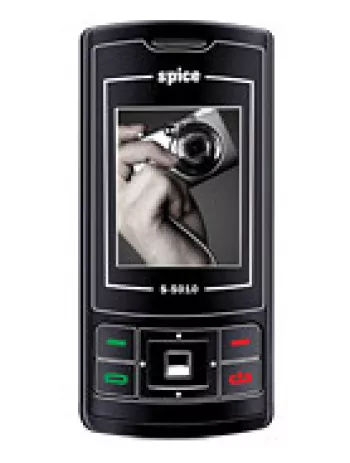
Overview of Spice Fire One (Mi-FX-1)
The Spice Fire One (Mi-FX-1) was introduced in August 2014 as one of the budget-friendly smartphones targeting emerging markets. Although it has been discontinued, the device left a mark due to its affordability and the introduction of the Firefox OS, aimed at providing an alternative to mainstream operating systems.
Design and Build
The Spice Fire One boasts a compact design with dimensions of 115.6 x 62 x 11.2 mm, making it easy to hold and use with one hand. Weighing only 65 grams, it is lightweight and portable. The device features a basic design available in three colors: white, black, and orange, appealing to users who prefer simplicity. The dual SIM functionality, supporting Mini-SIM cards, is particularly beneficial for users managing multiple phone numbers or traveling between regions.
Display
Equipped with a TFT display, the Spice Fire One provides 256K colors. The 3.5-inch screen with a resolution of 320 x 480 pixels (~165 ppi density) offers a decent viewing experience for basic tasks. While not suitable for high-definition media consumption, the display meets the requirements for browsing and app usage for entry-level users.
Performance and Hardware
At the heart of the Spice Fire One is the Spreadtrum 6821 chipset clocked at 1.0 GHz. This hardware setup supports basic smartphone operations, making it ideal for first-time smartphone users. The device runs on 128MB RAM and has 256MB of internal storage, which is expandable via a microSDHC card slot. Although limited by today's standards, it allows for the installation of essential applications and a moderate amount of media.
Operating System - Firefox OS
The device operates on Firefox OS, a unique operating system developed by Mozilla to promote open web standards. Firefox OS was designed to run HTML5 apps, offering a different approach to application development compared to iOS and Android. Though it didn’t gain widespread popularity, it represented a step towards more diversified operating systems in mobile technology.
Camera
The Spice Fire One features modest camera capabilities. The main camera is a single 1.3 MP sensor with an LED flash, capable of capturing basic photos and videos. For selfies and video calls, the device offers a VGA front camera. While these specifications are minimal, they align with the device’s purpose as an entry-level smartphone.
Battery and Connectivity
Powered by a Li-Ion 1400 mAh battery, the Spice Fire One provides up to 120 hours of standby time and up to 8 hours of talk time. Additionally, it offers up to 20 hours of music playback, accommodating users who enjoy listening to music on-the-go. In terms of connectivity, the device supports Wi-Fi 802.11 b/g/n, Bluetooth 2.1 with A2DP, and has an FM radio for versatile communication options. The inclusion of a microUSB 2.0 port and a 3.5mm audio jack covers the essential connectivity needs.
Network Capabilities
The Spice Fire One operates on GSM networks with supported 2G bands of GSM 900 and 1800 MHz for both SIM slots. This limits its connectivity to areas covered by these frequencies, which are prevalent in emerging markets. With GPRS and EDGE both being Class 12, the device allows for basic internet use, suitable for browsing and social media interaction.
Sound and Sensory Features
The device comes with dual speakers featuring reasonable sound output, enhancing the audio experience for calls and media playback. For basic sensory technology, it includes an accelerometer to support applications that require motion sensing.
Conclusion
The Spice Fire One (Mi-FX-1) served as a stepping stone for many into the world of smartphones, particularly in regions where affordability is crucial. The device, with its Firefox OS, presented a distinct alternative in the competitive smartphone market. While it may not meet modern smartphone expectations, its role in pioneering accessible technology makes it a notable component of mobile phone history.
Key Features of Spice Fire One (Mi-FX-1)
- Dual SIM capability (Mini-SIM)
- Lightweight design (65 g / 2.29 oz)
- Firefox OS for a unique user experience
- 3.5-inch TFT display with 256K colors
- Expandable storage via microSDHC card slot
- 1.3 MP main camera with LED flash
- Dual speakers for stereo sound quality
- Wi-Fi connectivity (802.11 b/g/n)
- FM radio for entertainment on the go
- 1400 mAh battery with up to 8 hours of talk time
- Available in three colors: White, Black, Orange
Drawbacks of Spice Fire One (Mi-FX-1)
- Only supports 2G GSM network technology, lacking 3G/4G capabilities.
- Discontinued model, which might affect support and services.
- Low internal memory of 256MB with only 128MB RAM.
- Low screen resolution of 320 x 480 pixels and low pixel density (~165 ppi).
- Basic 1.3 MP main camera and VGA front camera with limited functionality.
- Does not support 4G, Wi-Fi calling, or modern connectivity options like NFC.
- Lack of GPS/Positioning feature.
- Limited processing power with a 1.0 GHz single-core CPU.

View Also
More Phones
All Rights Reserved +14266 Phones © Mobilawy 2025
























